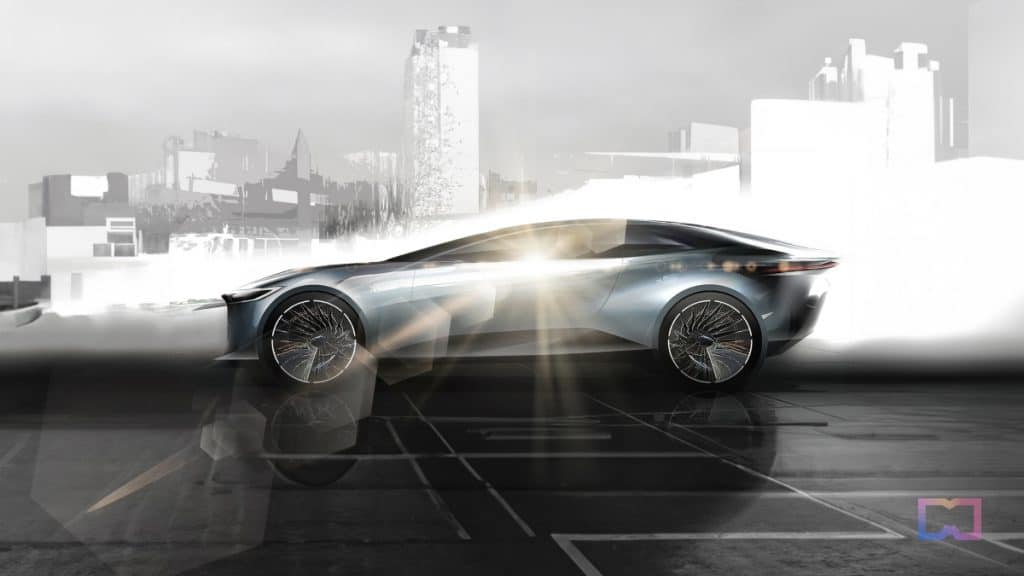Toyota Research Institute Empowers Vehicle Designers with AI Tools


In Brief
Toyota’s research team introduces AI to revolutionize vehicle design process.
New technique reduces iteration cycles by aligning design and engineering considerations, enabling designers to work more effectively.
The algorithm merges optimization theory and text-to-image-based generative AI, allowing designers to optimize engineering constraints using text-based stylistic prompts.
Toyota Research Institute (TRI) has introduced artificial intelligence to enhance vehicle designs. TRI’s new technique allows designers to integrate design sketches and engineering constraints, enhancing their creative process alongside publicly available text-to-image generative AI tools. The approach significantly reduces the number of iterations needed to align design and engineering. This allows designers to work more efficiently and effectively.

Avinash Balachandran, director of TRI’s Human Interactive Driving Division, highlighted the limitations of generative AI tools in handling complex engineering and safety considerations in car design.
“This technique combines Toyota’s traditional engineering strengths with the state-of-the-art capabilities of modern generative AI,”
said Balachandran, whose team contributed to the development of the technology.
TRI researchers have developed an approach that combines engineering constraints with the design process. This technique considers factors such as “drag (which affects fuel efficiency) and chassis dimensions like ride height and cabin dimensions (which affect handling, ergonomics, and safety).”
The team merged optimization theory and text-to-image-based generative AI to create an algorithm that enables designers to optimize engineering constraints using text-based stylistic prompts.
As an example, a designer can request a set of designs based on an initial prototype sketch, specifying stylistic properties like “sleek,” “SUV-like,” and “modern” while optimizing a performance metric. The research paper focuses on aerodynamic drag, but the approach can also optimize other performance metrics or design constraints inferred from an image.
Last year, Toyota announced its entrance into the metaverse. The Japanese carmaker conducted employee meetings and created virtual workspaces in the digital world. The company believes that virtual workspaces will provide a more immersive mode of communication where employees can engage with each other using avatars.
Read more:
- Apple files patent for an autonomous car with embedded VR functions
- Meta and BMW Unveil Future of In-Car Entertainment Featuring VR/AR
- Upland and the Stock Car Pro Series Have Joined Forces
Disclaimer
In line with the Trust Project guidelines, please note that the information provided on this page is not intended to be and should not be interpreted as legal, tax, investment, financial, or any other form of advice. It is important to only invest what you can afford to lose and to seek independent financial advice if you have any doubts. For further information, we suggest referring to the terms and conditions as well as the help and support pages provided by the issuer or advertiser. MetaversePost is committed to accurate, unbiased reporting, but market conditions are subject to change without notice.
About The Author
Agne is a journalist who covers the latest trends and developments in the metaverse, AI, and Web3 industries for the Metaverse Post. Her passion for storytelling has led her to conduct numerous interviews with experts in these fields, always seeking to uncover exciting and engaging stories. Agne holds a Bachelor’s degree in literature and has an extensive background in writing about a wide range of topics including travel, art, and culture. She has also volunteered as an editor for the animal rights organization, where she helped raise awareness about animal welfare issues. Contact her on agnec@mpost.io.
More articles

Agne is a journalist who covers the latest trends and developments in the metaverse, AI, and Web3 industries for the Metaverse Post. Her passion for storytelling has led her to conduct numerous interviews with experts in these fields, always seeking to uncover exciting and engaging stories. Agne holds a Bachelor’s degree in literature and has an extensive background in writing about a wide range of topics including travel, art, and culture. She has also volunteered as an editor for the animal rights organization, where she helped raise awareness about animal welfare issues. Contact her on agnec@mpost.io.





















































